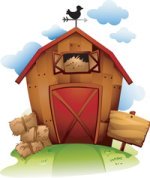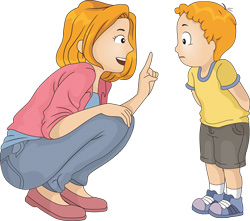Paradoxes, Oxymorons, and Contradictory Statements
In English, a contradictory statement is one that says two things that cannot both be true. Contradictory statements can be used for emphasis and humor.
Oxymorons and paradoxes are two types of contradictory statements. They are a type of figurative language in English. We will explain and demonstrate them in this lesson.
Click Here for Step-by-Step Rules, Stories and Exercises to Practice All English Tenses
A contradictory statement is a sentence or idea that says two things that cannot both be true. Contradictory statements are used for humor or to emphasize a point.
For example:
Nobody goes to that restaurant; it is too crowded.
If nobody goes to that restaurant, then it can not be crowded (full of people). If the restaurant is too crowded, then it is not true that nobody goes there.
This contradictory statement is used for emphasis. The restaurant is very crowded, so the speaker does not like to go there.

Paradoxes and Oxymorons are two types of contradictory statements in English.
Paradox
In English, a paradox is a statement that seems to say two opposite things, but may be true. A paradox contradicts itself. A paradox can also be a situation that is made up of two opposite things that seems impossible but is actually possible.
Paradoxes are used to challenge the mind (to make you think about something in a new way). They can also be used for humor.
Think about this sentence:
I am a compulsive liar.
If the speaker is a liar, then the statement cannot be true. But, if the statement isn't true, then is the speaker really a compulsive liar? It is a paradox. If the statement is true, then it is not true.

Here is another example:
You can save money by spending it.

This
seems strange. If you spend money, then you are not saving money. But,
it can be true. If you spend money to insulate your house, then
you will save money on cooling and heating bills. If you spend money to buy a better automobile, then you will save money on repairs.

Let's look at another example:
In George Orwell's novel Animal Farm, you will find this statement:
"All animals are equal, but some are more equal than others."
At first, this statement is confusing. It does not make sense. The two parts of the statement are contradictory. If all animals are equal, then they can't be different.
However, George Orwell is actually pointing out a political truth in the story. In the novel, the government says everyone is equal, but it has never treated everyone equally. Some of the animals view themselves as more privileged than others. This contradictory statement (paradox) is used to make a point.

Now, let's look at some funny examples.
A man says:
"I am in total control, but do not let my wife find out."

I am going to start thinking positive,
but I know it will not work.
The speaker is going to speak positive, then he says something negative.

Here are some more paradoxes:
- I know one thing: that I know nothing.
- This is the beginning of the end.
- These are the rules: ignore all the rules.
- Less is more.
- Someday you will be old enough to be young again.
- We need to go backwards to go forwards.
- Deep down, you're really shallow.
- If you're not here, raise your hand.
- Let me say it again: I never repeat myself.

Oxymorons
An oxymoron is a type of paradox. An oxymoron
is a combination of two or more words that have opposite or very
different meanings. The words contradict themselves. Sometimes it is
meant to be funny. poor little rich girl
Look at the poor little rich girl.
This
is a play on words. If she is rich, then she cannot be poor (without
money). However, it means that she is an unhappy girl from a wealthy
family.

Some words (like "poor") have more than one meaning. An oxymoron can make sense if you use the right definition of a word.
crash landing
The pilot had to make a crash landing.
If a plane crashes, then it does not land. This combination of words actually means to land roughly in an emergency.

Here are some more examples of oxymorons:
- cruel kindness
- living dead
- wise fool
- bittersweet
- escaped prisoner
- clearly confused
- open secret
- awfully nice
- found missing
- act naturally
- alone together
- pretty ugly
- genuine imitation
- small crowd
- seriously funny
- big baby
- original copy
- deafening silence
- shining darkness
- orderly chaos
- big sip
- dry ice
- known secrets

Get Updates, Special Offers, and English Resources
Download your FREE GIFT (the first two chapters of
English Short Stories Book and Workbook)
as soon as you join!

By submitting your email, you consent to receiving updates and newsletters from us and to the sharing of your personal data with third parties for the purposes of sending you communications. We will not spam you. You can unsubscribe at any time. For more information, please see our privacy policy.
Return
from Paradoxes, Oxymorons, and Contradictory Statements to Figurative Language in English





